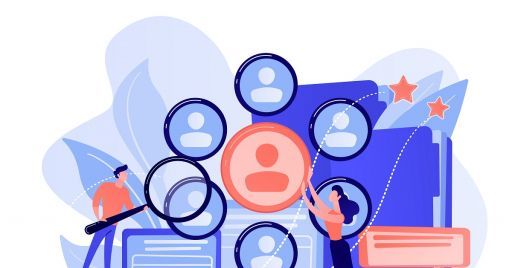
HR challenges of 2021: smart working and training
Enhancing agile working and digital training: these are the main challenges that the HR sector will have to face during 2021
The covid-19 emergency has profoundly changed the role and responsibilities of HR professionals. This is stated by a research of the HR Practice Innovation Observatory of PoliMi conducted on a sample of 215 large companies.
According to the data collected, 73% of HR managers interviewed believe that their role has become more strategic. In fact, during 2020, HR departments had to deal with both the operational management of the emergency and with initiating more profound and lasting changes linked, for example, to the adoption of smart working and the need to rethink workplaces as inclusive and stimulating spaces even in virtual mode.
On the other hand, despite the fact that 2020 has seen a large-scale use of smart working, there are still few companies that have launched agile organizational models. In fact, according to 45% of HR respondents, the consolidation of smart working will be the main HR challenge of 2021, followed by workforce retraining (42%) and the development of digital culture and skills (38%).
The pandemic has forced 35% of workers to acquire new skills to adapt to new ways of working. Seven out of ten workers think that, due to digitization and new work patterns, they will need to update their skills in the next two years to continue in their jobs.
For their part, companies have accelerated their digital investments, with a focus on training, communication and workplace climate management projects.
What's emerging, however, is that more than a year after the pandemic began, companies still need a skills leap to move beyond simple "HR management" to adopt a model that can positively transform the business experience and increase worker engagement in HR processes.
In fact, the continuation of the pandemic and forced remote working has had a strong impact on workers' mental and physical well-being: 25% complain of a strong decline in their sense of belonging and 23% report a reduction in interpersonal relationships at work, especially with other work teams. Overall, the percentage of people who feel "engaged" or "fully engaged" has also declined.
To stimulate worker engagement, therefore, it is necessary to redesign the corporate experience by getting people more involved in business decisions. How? For example, by working on performance management, i.e. the transparent communication of information relating to salaries, objectives achieved and the involvement of people in the definition of their individual objectives. Only 14% of organizations, however, are mature about these aspects in all HR processes.
Another area to invest in concerns the use of digital technologies and data for decision support. However, HR Departments lack a data-driven culture, with just 15% measuring the impact of their practices on the business. The main barriers to data use are the lack of a standardized process for collecting data on HR processes (61%), poor integration of IT systems (41%) and low awareness of the benefits by management (29%).
Digital tools to support HR processes, however, have increased over the previous year: tools for monitoring worker performance (77%), software for video interviews with candidates (53%) and apps for onboarding (63%) have grown or will be introduced in the coming months.
Translated with www.DeepL.com/Translator